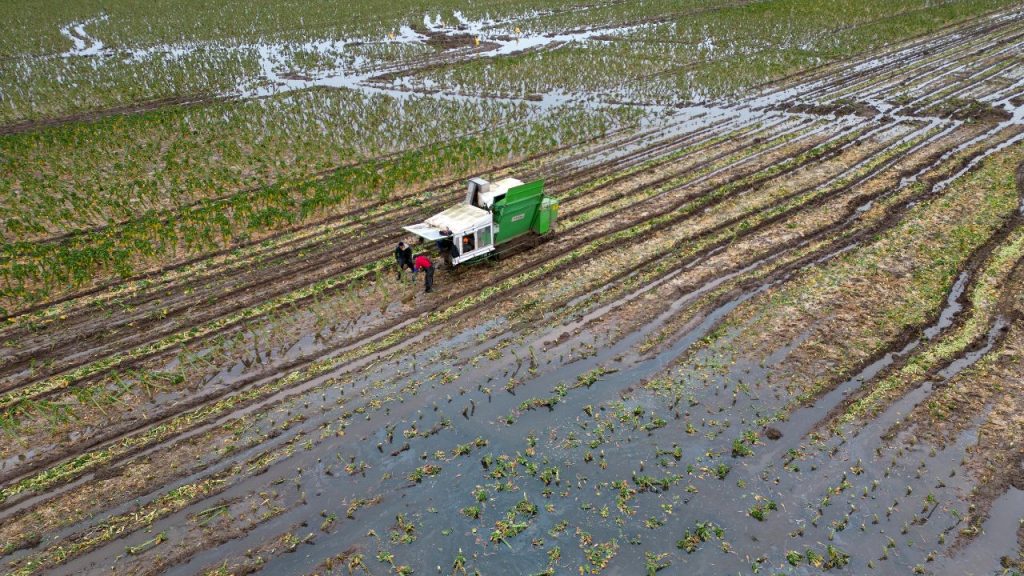A Pressing Challenge for Agriculture
Climate change is one of the most significant challenges facing UK farming today. The shifting climate patterns are already impacting agriculture, altering the way crops are grown, livestock is managed, and food is produced. As the effects of climate change become more pronounced, UK farmers must adapt to ensure the sustainability and resilience of their operations. This article explores the various ways climate change is affecting UK farming and what the future might hold for the agricultural sector.
Changing Weather Patterns and Crop Production
One of the most noticeable effects of climate change on UK farming is the alteration of weather patterns. The UK has seen an increase in extreme weather events, such as heavy rainfall, prolonged droughts, and unseasonably warm or cold temperatures. These changes have a direct impact on crop production, as crops are highly sensitive to variations in temperature, moisture, and growing conditions.
For example, warmer temperatures may extend the growing season for some crops, but they also increase the risk of heat stress and reduce water availability. Crops such as wheat and barley, which are staple grains in the UK, may face reduced yields if temperatures continue to rise and droughts become more frequent. Additionally, heavy rainfall can lead to soil erosion, waterlogging, and the increased spread of plant diseases, further threatening crop productivity.
Impact on Livestock Farming
Climate change is also affecting livestock farming in the UK. Warmer temperatures can cause heat stress in animals, leading to reduced growth rates, lower milk production, and decreased fertility. Livestock are also more vulnerable to new diseases and parasites that thrive in warmer climates, posing additional risks to animal health and farm profitability.
Furthermore, changing weather patterns can disrupt the availability of feed and water for livestock. Droughts can reduce the quality and quantity of pasture, forcing farmers to rely more on expensive supplementary feeds. In contrast, excessive rainfall can damage grazing lands and increase the risk of flooding, which can lead to loss of livestock and damage to farm infrastructure.
Soil Health and Fertility
Soil health is crucial for sustainable farming, but climate change poses significant challenges to maintaining soil fertility. Increased rainfall can lead to soil erosion and nutrient runoff, depleting the soil of essential minerals needed for crop growth. On the other hand, drought conditions can cause soil compaction and reduce the soil’s ability to retain moisture, making it harder for crops to establish strong root systems.
In response to these challenges, UK farmers are increasingly adopting practices such as cover cropping, reduced tillage, and organic farming methods to improve soil health and resilience. These practices help to protect the soil from erosion, enhance water retention, and promote biodiversity, all of which are essential for maintaining productive farmland in the face of climate change.
Economic Impact on Farmers
The economic impact of climate change on UK farming is significant. Reduced crop yields, increased costs for irrigation and supplementary feeds, and the need for new infrastructure to manage extreme weather events all add to the financial burden on farmers. For some, these challenges may threaten the viability of their farms, particularly smaller operations that have less capacity to absorb these additional costs.
Moreover, the unpredictability of weather patterns makes it difficult for farmers to plan their operations and manage risks effectively. This uncertainty can lead to fluctuations in food prices and supply, affecting both farmers’ incomes and consumers’ access to affordable food.

Adapting to Climate Change
Despite the challenges, UK farmers are taking steps to adapt to the changing climate. Innovations in agricultural technology, such as precision farming, drought-resistant crop varieties, and automated irrigation systems, are helping farmers to mitigate the effects of climate change and improve efficiency. Additionally, government initiatives and financial support are available to assist farmers in adopting sustainable practices and building resilience against climate-related risks.
There is also a growing emphasis on reducing the carbon footprint of agriculture, with initiatives aimed at improving energy efficiency, reducing greenhouse gas emissions, and promoting carbon sequestration through practices such as agroforestry and rewilding.
The Future of UK Farming in a Changing Climate
The future of UK farming will depend on how well the sector can adapt to the challenges posed by climate change. While the impacts are already being felt, there are opportunities for innovation and sustainable development that can help ensure the long-term viability of British agriculture. By embracing new technologies, adopting sustainable practices, and working together to address the risks of climate change, UK farmers can continue to produce food for the nation while protecting the environment for future generations.
Conclusion: Climate Change and Its Effects on UK Farming
Climate change is reshaping the landscape of UK farming, presenting both challenges and opportunities. The effects on crop production, livestock farming, soil health, and farm economics are already evident, and the need for adaptation is urgent. By taking proactive measures and embracing sustainable practices, UK farmers can mitigate the impacts of climate change and build a resilient agricultural sector that can thrive in the years to come.
